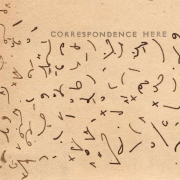Compressed Tax Brackets on Irrevocable Trusts
What is this rumor I have heard about compressed tax brackets and irrevocable trusts?
Great question.
The answer to the question is something everyone should be aware of when deciding to use a trust as the means to distribute assets after death.
When your trust becomes irrevocable, it has compressed tax brackets when compared to the tax brackets of individuals.
Income tax brackets that apply to irrevocable trusts:
If taxable income is: The tax is:
Not over $2,500 15% of the taxable income
Over $2,500 but $375 plus 25% of
not over $5,800 the excess over $2,500
Over $5,800 but $1,200 plus 28% of
not over $8,900 the excess over $5,800
Over $8,900 but $2,068 plus 33% of
not over $12,150 the excess over $8,900
Over $12,150 $3,140.50 plus 39.6% of
the excess over $12,150
Income tax brackets for individuals: Single Filers
10% – $0 to $9,225
15% – $9,225 to $37,450
25% – $37,450 to $90,750
28% – $90,750 to $189,300
33% – $189,300 to $411,500
35% – $411,500 to $413,200
39.6% – $413,200+
Why do we care …. and what should we do?
It is usually a goal of the families we work with to minimize the taxes paid in a given situation. The upshot of the bracket differences is that, after your death, if you keep enough gain in the irrevocable trust, the gain will typically end up taxed at the higher rates than if the beneficiaries receive the gain and the related tax. Knowing this is a possibility, most of the gain in the irrevocable trust over a given calendar year should be distributed to the beneficiaries via care and maintenance payments and other discretionary distributions rather than held in the trust and taxed. If it is paid to the beneficiary, the beneficiaries rate is used.
One recent example that comes to mind is the small family-held business where the shares are held by the irrevocable trust. The business can be run in various ways (e.g., salaries to the employees or dividends declared to shareholders) in such a way that the income retained in the trust is not excessive. Another alternative is to have the ownership of the entity transferred out of the irrevocable trust sooner rather than later and run externally or sold.
Who decides what to do when the trust faces these issues?
All of these decisions are usually provided in the trust language and leaves these tax decisions in the full discretion of the trustee. The trustee can then, as time progresses, weigh tax options and respond accordingly.







Leave a Reply
Want to join the discussion?Feel free to contribute!